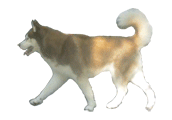Our Therapy Dog Program proves that positive human-animal interactions improve the physical, emotional and psychological lives of those we help. Our small group of volunteers share their time and the unconditional love of their dog with others.
Animal-assisted activities provide social interactions for those recuperating in the hospital, the elderly in retirement homes or even students trying to cope with the stress of exams on college campuses.
Vancouver Sun, CBC and CTV News: watch these videos of how our therapy dogs help students
Watch our dogs with Dr. Stanley Coren, world-renowned canine psychologist
Our animals create opportunities for motivational, educational and recreational benefits to enhance the quality of life of many people in need. Dog therapy is also when a dog and handler team is overseen by a professional health provider and incorporated as part of a goal-oriented and structured therapeutic intervention. This may mean working with a physiotherapist where the client practices brushing a dog for strength building exercises or partnering with an occupational therapist where the task of attaching a secondary leash to an animal is an activity to work on improving fine motor skills.
The benefits of therapy dog activities to recipients of visits are indisputable and the body of supporting research grows daily. These animal-assisted interactions have been shown to decrease the perception of pain, lower blood pressure and even cholesterol, promote care compliance, and minimize anxiety. (Please note therapy dogs are NOT service dogs or emotional support dogs.)

Click to Read Full Article in Times Colonist
We work together with Community Inclusion Groups such as the Canadian Mental Health Association, Spectrum Society and posAbilities to help connect their members to the unconditional love of a therapy dog.
Would you like to give back to your community and take part in our Therapy Dog Program? Take our
If you have gentle dog who is at least 1 year old, and loves men, women and children, and is non-agressive to all other dogs, you may want to consider joining our Therapy Dog Program.
Check our Requirements to see if you are a right match and then Contact Us to register for our next Pet Screening to see whether your dog would be suitable to work as a Therapy Dog providing love and comfort to people who are in discomfort or disabled in your community.




















